
BBC Sherlock Fan Forum - Serving Sherlockians since February 2012.
- tehanu
- Not A Hero
 Offline
Offline - Registered: January 30, 2015
- Posts: 55
Was Sherlock sober during John's wedding?
Sorry if you guys have already discussed it, maybe ages ago, but I only thought about it after TAB.
Isn't his drugged problem solving mind, when we get sneak peeks into it, narrative and dramatic, with scenery and characters? Also in TSiB after Irene injects him, although it will get complicated once you get into what drugs were used where. But in THoB his mind palace works like a database, all orderly and ready for direct acess, and that is also how he seems to work in ASiP when axemining Jennifer's body... and so on.
So, the courtroom of TSoT, with its Mycroft and Irene and John and the suspect women? Not as elaborate as TAB, but still drugged?
- Vhanja
- One More Miracle
 Offline
Offline 
- From: Sandnes, Norway
- Registered: December 11, 2014
- Posts: 6,607
Re: Was Sherlock sober during John's wedding?
What we see is that when Sherlock is drugged, it's clearly visible. He becomes phsycially unstable, shaking and is clearly affected. We see that with Irene, in HLV and on the plane. We see nothing like that in TSoT, therefore I doubht he was drugged at the time. Especially considering he had a job to do as John's best man, and he clearly wanted to do it well. So I got the impression he did it soberly to be at it's best for John, and then left to do drugs ("for the case") afterwards.
__________________________________________________________________________________________________________________________________________
"We'll live on starlight and crime scenes" - wordstrings

Team Hudders!
- tehanu
- Not A Hero
 Offline
Offline - Registered: January 30, 2015
- Posts: 55
Re: Was Sherlock sober during John's wedding?
Hi.
Vhanja wrote:
What we see is that when Sherlock is drugged, it's clearly visible. He becomes phsycially unstable, shaking and is clearly affected. We see that with Irene, in HLV and on the plane.
Come on, when watching the end of HLV for the first time (not the heroin den part at the beginning) you had any impression Sherlock could be high on cocaine? He just looked moved by the emotions. I don't think Cumberbatch would have said, at that point, that Sherlock was high. Maybe the writers wouldn't.
So I got the impression he did it soberly to be at it's best for John, and then left to do drugs ("for the case") afterwards.
But the case solving (that of a threat to Sholto) and being there for John (the speech etc.) happen at the same time.
Maybe it doesn't have to be clearly visible, depending on what drugs, in what doses, how long ago and who is watching / imagining.
Last edited by tehanu (January 5, 2016 12:17 pm)
- •
- Vhanja
- One More Miracle
 Offline
Offline 
- From: Sandnes, Norway
- Registered: December 11, 2014
- Posts: 6,607
Re: Was Sherlock sober during John's wedding?
When they shot the end of HLV, they hadn't written TAB yet. So as far as we know, Benedict is playing it sober.
There are no indications of him having used drugs in TSoT. When he does use it or are drugged by others (Irene), we are clearly shown the effects or after-effects of it.
__________________________________________________________________________________________________________________________________________
"We'll live on starlight and crime scenes" - wordstrings

Team Hudders!
- tehanu
- Not A Hero
 Offline
Offline - Registered: January 30, 2015
- Posts: 55
Re: Was Sherlock sober during John's wedding?
Okay. Since now I wonder if we saw the same TAB, I give up until I can see it again ![]() .
.
- •
- Liberty
- Moderator
 Offline
Offline 
- Registered: June 29, 2014
- Posts: 5,992
Re: Was Sherlock sober during John's wedding?
I think that in the scene with Irene, he's listening to Irene solving the case (which he has already solved) rather than using a mind palace himself.
- Sherlock Holmes
- Administrator
 Offline
Offline 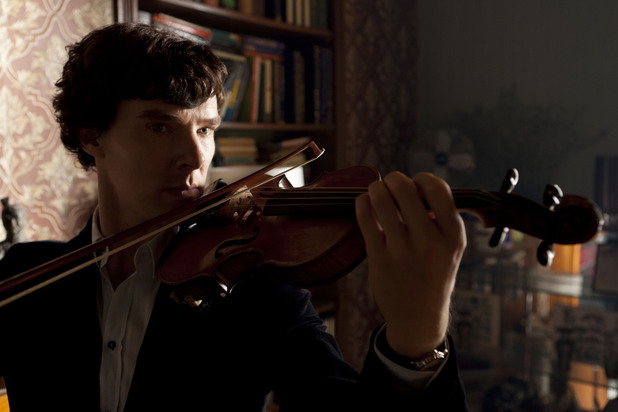
- From: 221B Baker Street
- Registered: February 7, 2012
- Posts: 5,162
Re: Was Sherlock sober during John's wedding?
Well, according to Mycroft, Sherlock can hide being on drugs...
---------------------------------------------------------------------------------------------------------------------------------------------
Eventually everyone will support Johnlock.
Independent OSAJ Affiliate

- besleybean
- Threatened Knighthood
 Offline
Offline 
- From: Carnoustie, Angus, Scotland.
- Registered: October 4, 2012
- Posts: 21,380
Re: Was Sherlock sober during John's wedding?
Well if he could deliver that speech drunk...I am impressed.
---------------------------------------------------------------------------------------------------------------------------------------------------------------
- Lilythiell
- High Functioning Sociopath
 Offline
Offline 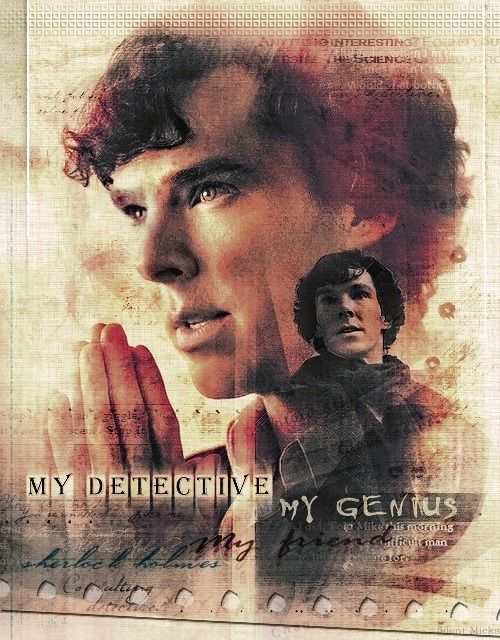
- From: France
- Registered: May 11, 2014
- Posts: 2,371
Re: Was Sherlock sober during John's wedding?
not drunk, besley. High ![]()
Like tenahu said, it depends on a lot of factors to see any kind of evidence (not mentioning that no one deceives like an addict)...
I don't think Sherlock was high, though. I do think he did take drugs. Afterwards -and here is what he did after he left the wedding early. ![]() Excuse me while I pick up the pieces of my heart. Or what's left of it.
Excuse me while I pick up the pieces of my heart. Or what's left of it.
-------------------------------------------------------------------------
I'd be lost without my blogger.
"It’s not a ‘gang’ show, it’s the Sherlock and John show. It’s about developing their characters and their relationship, and the characters drawn into their orbit.” Steven Moffat
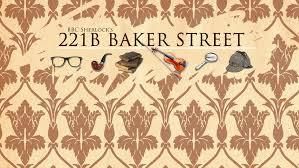
- tonnaree
- The "B" is SILENT! (Mod)
 Offline
Offline 
- From: Atlanta, Georgia, USA
- Registered: May 31, 2013
- Posts: 9,270
Re: Was Sherlock sober during John's wedding?
It is possible that Sherlock took a mild dose before the wedding to take the edge off and gather his courage.
But he would've been very very careful. Consider his words to Sholto, "we would never do that to John Watson, not at his wedding." Sherlock might have needed a boost, but he never would've taken enough for anyone to notice.
Last edited by tonnaree (January 5, 2016 7:20 pm)
----------------------------------------------------------------------
Proud President and Founder of the OSAJ.
Honorary German
"Anyone who takes himself too seriously always runs the risk of looking ridiculous; anyone who can consistently laugh at himself does not".
-Vaclav Havel
"Life is full of wonder, Love is never wrong." Melissa Ethridge
I ship it harder than Mrs. Hudson.


- besleybean
- Threatened Knighthood
 Offline
Offline 
- From: Carnoustie, Angus, Scotland.
- Registered: October 4, 2012
- Posts: 21,380
Re: Was Sherlock sober during John's wedding?
Oh sorry.
I only ever use the term 'sober' in reference to drink.
I don't really see why he would be high...would he do that to John?
---------------------------------------------------------------------------------------------------------------------------------------------------------------
- JP
- Mycroft's Contact
 Offline
Offline 
- From: Germany
- Registered: January 24, 2015
- Posts: 405
Re: Was Sherlock sober during John's wedding?
Sherlock Holmes wrote:
Well, according to Mycroft, Sherlock can hide being on drugs...
It's contradictory to what I have seen in S1-S3.
I suppose that the stuff Irene and the Cabby used was something different than the "recreational" drugs, so Sherlock's reaction on them is not relevant, IMO.
Attached to morphine he stated that it's not good for thinking and reduced the dose.
When he is on drugs we SEE it clearly in his face - in the drug den when John finds him and in the plane. Should he have taken anything prior to the farewell scene, it should have been visible because red eyes etc. is something he cannot control.
Spontaneous thought - is the end of TAB real? Because Mycroft is much too nice - if you just compare it to his reaction at the beginning of HLV.
- Vhanja
- One More Miracle
 Offline
Offline 
- From: Sandnes, Norway
- Registered: December 11, 2014
- Posts: 6,607
Re: Was Sherlock sober during John's wedding?
I agree, I think it would've been visible if he had taken drugs. Also, I don't think Sherlock is in the habit of taking various amounts of drugs for various difficult situations. He isn't that type of an addict. It would diminish the severity of the times that he do take drugs, I feel.
__________________________________________________________________________________________________________________________________________
"We'll live on starlight and crime scenes" - wordstrings

Team Hudders!
- Mattlocked
- One More Miracle
 Offline
Offline 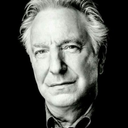
- From: Germany
- Registered: June 29, 2012
- Posts: 6,781
Re: Was Sherlock sober during John's wedding?
JP wrote:
[
Spontaneous thought - is the end of TAB real? Because Mycroft is much too nice - if you just compare it to his reaction at the beginning of HLV.
Well, we know that Mycroft constantly worries.
He is nice and loves his brother. That he shows it this time - and in a quite serious, almost sad way! - is what I am a bit worried about. Don't know what to make out of it, yet.
In another thread some were wondering if Mycroft might die in S4...
__________________________________
"After all this time?" "Always."
Good bye, Lord Rickman of the Alan
- besleybean
- Threatened Knighthood
 Offline
Offline 
- From: Carnoustie, Angus, Scotland.
- Registered: October 4, 2012
- Posts: 21,380
Re: Was Sherlock sober during John's wedding?
The only time I've really seen Mycroft like that before is at the Diogenes club, when John confronts him about feeding Moriarty the info on Sherlock.
Now that time it was Mycroft apologising to John in a kind of false way, or at least for a reason John didn't know about...
---------------------------------------------------------------------------------------------------------------------------------------------------------------
- RavenMorganLeigh
- Official Blogger
 Offline
Offline 
- From: Seattle, WA, USA
- Registered: December 25, 2013
- Posts: 1,575
Re: Was Sherlock sober during John's wedding?
One thing that sticks out to me is that in the hospital during HLV, Sherlock turned down the morphine, because its bad for brain work. That is absolutely NOT Junkie behavior. A true Addict would never have that much self-control. So, again-- continuity is a bit iffy. I always thought Sherlock was suffering from PTSD from being tortured /isolated for so long, during John's wedding. And suffering from heartbreak.
- nakahara
- Threatened Knighthood
 Offline
Offline 
- Registered: February 22, 2014
- Posts: 11,979
Re: Was Sherlock sober during John's wedding?
His pupils are of normal size in the light. He is absolutely sober: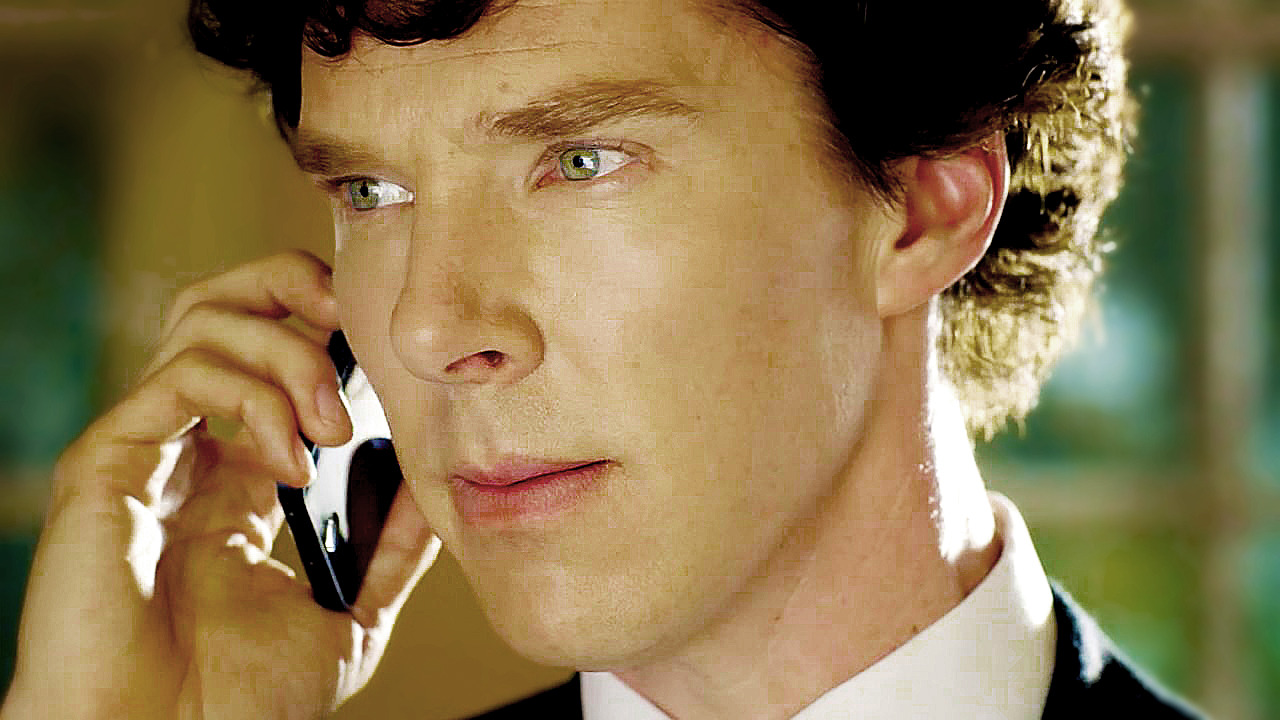
-----------------------------------
I cannot live without brainwork. What else is there to live for? Stand at the window there. Was there ever such a dreary, dismal, unprofitable world? See how the yellow fog swirls down the street and drifts across the dun-coloured houses. What could be more hopelessly prosaic and material? What is the use of having powers, Doctor, when one has no field upon which to exert them?

- RavenMorganLeigh
- Official Blogger
 Offline
Offline 
- From: Seattle, WA, USA
- Registered: December 25, 2013
- Posts: 1,575
Re: Was Sherlock sober during John's wedding?
Agreed.
- tehanu
- Not A Hero
 Offline
Offline - Registered: January 30, 2015
- Posts: 55
Re: Was Sherlock sober during John's wedding?
OK, I have seen it again but I still have he transcript open, because the second time I got carried away again and just flew with the episode rather than memorizing useful bits of dialogue and apparently I can't do both at once.
Mycroft does say Sherlock was high before he got on the plane (and John doesn't think he seemed high, but Mycroft is convinced he was). Mycroft probably has more experience with Sherlock's complicated relationship with drugs, and he is more observant / better at deducing from details than John.
Assuming that the apparent hacking of England in Moriarty's name is not a ploy by Mycroft to have a good excuse to get Sherlock a pardon, Sherlock genuinely didn't know about the crisis when boarding the plane (or when he took the drugs). Now the drugs were apparently some infernal concoction if there is a list and it is implied that cocaine was on the list and perhaps the crucial item on it, but he didn't take them in order to solve this case. They helped him think about the case (and apparently some other things while he was at it) but the reason for taking them was different.
Sherlock implies he took them because he needed a distraction ("No need for that now. Got the real thing. I have work to do") which is like the line about cigarettes in THoB, but distraction needn't be from boredom; it could be from unhappiness.
Anyway, what he actually does -- tries to solve the current crisis by solving another case, long cold, while apparently analysing to bits his obsession with Jim, Jim's obsession with him, some things about Mary and some about John -- is suspiciously complex, multi-layered and narrative.
Mycroft does note that this is not how a mind palace works, that a mind palace is for data storage, not for immersable stories with drama etc. That will be beause Mycroft is oversimplifying for John, and because he is not a drug user.
Mind palace-like memory techniques wee not invented for Sherlock; they are real and really work although they require a lot of effort; well tanstaafl. They are for example nicely depicted in John Crowley's Little, Big, which also points out how they can be used to discover (seemingly) new information: it's possible to know things without knowing that you know them and a well-apointed mind palace can surprise you with access to such lost knowledge and so boost your thinking (even though it won't make you any more clever). That way of using a memory building actually is a little bit narrative but nowhere near as elaborate as what Sherlock does here. He is unique, I know, but this is the first time we see him spin a story so complex; he doesn't seem like a fiction person at all. And both Sherlock and Jim mention going deep, or deeper, into himself, apparently by means of that drug cocktail.
So I think his sober mind palace is more mundane, more like a spatial database or what we saw in THoB. The closest we see to that not-quite lucid dream of TAB is in TSiB when he solves the hjker's case with a dreamed-up version of Irene and he is drugged then too. With something very different probably, ketamine or something but that can make you hallucinate too.
Now TSoT. When he originally tackled the case of the Mayfly Man, he talked to all those women via chat. Is the courtroom scene how he saw it then, or only how he thought about it looking back, telling the story at the wedding? I assumed the latter but perhaps both? The rest of the courtroom scene, however, the part after the wineglass breaks, is clearly his mind during the wedding. And while not as colourful as TAB, the courtroom scene is imilarly detailed to that deduction with Irene and like TAB it seems to solve a few things on a few levels simultaneously: the Mayfly Man of the past, the current threat at the wedding, some things in the background about himself and John and marriages. All that looks suspiciously like Sherlock's problem solving mind after he took something. Not much; he obviously thinks he can control it, so he probably often can.
The argument that he wouldn't do that to John, and at John's wedding, is much more convincing to me than what his pupils looked like, but not decisive because I'm afraid that he would seriously think that if John never finds out, then no harm done. What he does before the HLV / TAB plane is like that, after all. And he thinks he is in control. And perhaps when he takes cocaine it really is only a seven percent solution, although intravenously? That part makes it hard to compare with what people actually do that I know of.
- •
- Vhanja
- One More Miracle
 Offline
Offline 
- From: Sandnes, Norway
- Registered: December 11, 2014
- Posts: 6,607
Re: Was Sherlock sober during John's wedding?
We also see a detailed MP in HLV, after he got shot. I think that how he does it in TSoT is how his (sober) mind works. Sherlock does have a brilliant mind, able to solve several things at once, at a very high speed. That is what he does.
__________________________________________________________________________________________________________________________________________
"We'll live on starlight and crime scenes" - wordstrings

Team Hudders!

 1
1